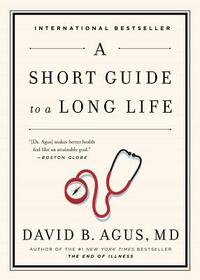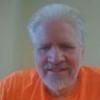Take a photo of a barcode or cover
Short & sweet. Kind of a reader's digest of common sense things to do to maintain better health. There were a few things I hadn't really thought about as I move into old(er) age, which is to be proactive about taking care of eyes & feet. If you regularly read any kind of health newsletter though, you likely won't hear anything new.
Less painful than his last book, but still incredibly repetitive with a lot of common advice. He has an interesting fixation on statins, aspirin, and anti-supplement. He also seems to enjoy being contrarian. If you feel like you must read a book by him, go with this. Better yet, steer clear entirely.
Going to follow Sarah L's lead and create a shelf called Just Couldn't Do It. This book wasn't terrible, but I do not believe there are any great revelations in it so I'm done.
Obvious things but really great way of getting points across
A common sense, user friendly approach to overall health with an emphasis on prevention. Dr. Agus speaks in plain language in this rather brief book on health. His aim is to put a person in charge of their own life and quit listening to the media. He focuses on eating real food, destressing, weight control and exercise. He does not believe in vitamins or juicing. Each chapter is just 2-3 pages long and thus very accessible to all readers.
informative
fast-paced
While many parts of this book were valuable, I did find some of the recommendations dated and inappropriate. Tip #40 Embrace your OCD side didn't sit well with me. OCD is more than just wanting to be clean, it's about obsessive and repetitive thoughts, and this tip felt very dismissive of that fact. I also didn't love the random sidebar on Airport X-ray scanners, or the complete dismissal of vitamins and supplements without much discussion of that topic. Several other tips had more information that the one on vitamins, but the push to avoid vitamins was towards the top of the list. Overall, I did find value in some of the tips, but I don't know if I would recommend this to someone who isn't the best at critical thinking.
I can't recommend a book that tells you to ask your Whore in Lab Coat - I mean doctor - why you shouldn't be on a drug. The Whores over-prescribe medications without asking them this. I eat right, get a little exercise and I'm almost 5* and I'm not on any prescription drugs.
21: A Short Guide to a Long Life by David B. Agus, M.D.
I first learned of Dr. David Agus a week ago when he was on CBS Sunday Morning and talking about his new book, The Book of Animal Secrets. When I searched that one in the library catalog, I learned it is not yet available but a couple of other earlier books by him were. So this one traveled up my hold list first.
Oh, what a beautiful book and such accessible, thoughtful, and relevant easy to follow advice. I do wonder how it is received by someone who doesn't already believe in and/or agree with so much that Agus says here, as to ME it's such wonderful logical and supportive direction for things I'd already been thinking if not things I'd already put into play. Because of that, the ideas he share that were new to me were also extremely well received. Additionally, that he lauds and admires the likes of Michael Pollan compels me as well.
I found quite profound the fact that this book was published in 2014 yet conveys so rationally how important it is to get a flu shot every year. Not only is this especially true for those who say things like "I never get a flu shot," and/or "I've never gotten the flu," but it is so not simply about just avoiding the flu. That he wrote this long before COVID was even a shimmer of fear on the horizon makes it so, so sensible to apply this same direction and advice to COVID shots and boosters. And anyone who has lost a loved one to COVID would--I think--wish to have someone so reasonable as Agus speak to any remaining non-believers who still.don't.get.it.
65 quick and simple sections split between "to do" and "not to do/avoid" parts of the book and those followed by a "Doctor's Orders" section, making suggestions of things to discuss with your physician at particular decades of life, including recommendations for diagnostics to have assessed at each stage...and all preventatively.
Some sections I honestly found fascinating...and so very logical. For instance, in the instruction #9, entitled "Cultivate Om in the Office," Agus talks about how Finnish researchers in 2012 examined nearly 3000 people and found a correlation between work stress and faster biological aging, learning that a person's telomeres--the DNA sequences found at the end of a person's chromosomes and whose lengths say all kinds of things--will more likely shorten the more pressure they fell at work. And ultimately: "the shorter your telomeres, the shorter your life" (37). This so made me wonder whether Nikki Erlick read this same study (or THIS book) before writing The Measure.
Only a very few questions would I have for Agus if I had opportunity to ask: what about intermittent fasting? There's a piece about the importance of breakfast, and that all makes good sense as well, yet I have gained value from intermittent fasting both in actually losing weight but also truly being "hungry" more often than not before eating. And that feels so much better than just eating again because it is time. Additionally, there are, in the camp that is "for" intermittent fasting advocates of what it does for your metabolism and more as well. So I am wanting to wrestle through this contradiction. And also: he still advocates here for the glass of red wine with dinner, and I have jokingly said for years--and especially given Dr. Zorba Paster's valuing of the Mediterranean diet--that I follow that one (as it recommends the red wine). Yet I have read(red?) more and more lately that says that really NO ALCOHOL is the very best way to go. So I have been leaning that direction lately. Just curious as to how that all meshes as well.
What I enjoy about this book the VERY MOST is Agus's premise, as I see it, that his type of healthcare--this idea of practicing preventative behaviors--is far, far more wholly affordable (it is certainly true that the issue of food deserts and scarcity and unaffordable quality food for particular populations remain hurdles) than insurance and healthcare is for the treatment of all of these often avoidable conditions. And I think that if pressed, he could cite all of the research and data as well. He simply does not reference everything with every idea as that would make this a book to be read only by the professionals. The way this is written it is accessible for all...and there is soooooo much good advice to access by reading it yourself!
Please do and let me know what you found most interesting or surprising to learn.
I first learned of Dr. David Agus a week ago when he was on CBS Sunday Morning and talking about his new book, The Book of Animal Secrets. When I searched that one in the library catalog, I learned it is not yet available but a couple of other earlier books by him were. So this one traveled up my hold list first.
Oh, what a beautiful book and such accessible, thoughtful, and relevant easy to follow advice. I do wonder how it is received by someone who doesn't already believe in and/or agree with so much that Agus says here, as to ME it's such wonderful logical and supportive direction for things I'd already been thinking if not things I'd already put into play. Because of that, the ideas he share that were new to me were also extremely well received. Additionally, that he lauds and admires the likes of Michael Pollan compels me as well.
I found quite profound the fact that this book was published in 2014 yet conveys so rationally how important it is to get a flu shot every year. Not only is this especially true for those who say things like "I never get a flu shot," and/or "I've never gotten the flu," but it is so not simply about just avoiding the flu. That he wrote this long before COVID was even a shimmer of fear on the horizon makes it so, so sensible to apply this same direction and advice to COVID shots and boosters. And anyone who has lost a loved one to COVID would--I think--wish to have someone so reasonable as Agus speak to any remaining non-believers who still.don't.get.it.
65 quick and simple sections split between "to do" and "not to do/avoid" parts of the book and those followed by a "Doctor's Orders" section, making suggestions of things to discuss with your physician at particular decades of life, including recommendations for diagnostics to have assessed at each stage...and all preventatively.
Some sections I honestly found fascinating...and so very logical. For instance, in the instruction #9, entitled "Cultivate Om in the Office," Agus talks about how Finnish researchers in 2012 examined nearly 3000 people and found a correlation between work stress and faster biological aging, learning that a person's telomeres--the DNA sequences found at the end of a person's chromosomes and whose lengths say all kinds of things--will more likely shorten the more pressure they fell at work. And ultimately: "the shorter your telomeres, the shorter your life" (37). This so made me wonder whether Nikki Erlick read this same study (or THIS book) before writing The Measure.
Only a very few questions would I have for Agus if I had opportunity to ask: what about intermittent fasting? There's a piece about the importance of breakfast, and that all makes good sense as well, yet I have gained value from intermittent fasting both in actually losing weight but also truly being "hungry" more often than not before eating. And that feels so much better than just eating again because it is time. Additionally, there are, in the camp that is "for" intermittent fasting advocates of what it does for your metabolism and more as well. So I am wanting to wrestle through this contradiction. And also: he still advocates here for the glass of red wine with dinner, and I have jokingly said for years--and especially given Dr. Zorba Paster's valuing of the Mediterranean diet--that I follow that one (as it recommends the red wine). Yet I have read(red?) more and more lately that says that really NO ALCOHOL is the very best way to go. So I have been leaning that direction lately. Just curious as to how that all meshes as well.
What I enjoy about this book the VERY MOST is Agus's premise, as I see it, that his type of healthcare--this idea of practicing preventative behaviors--is far, far more wholly affordable (it is certainly true that the issue of food deserts and scarcity and unaffordable quality food for particular populations remain hurdles) than insurance and healthcare is for the treatment of all of these often avoidable conditions. And I think that if pressed, he could cite all of the research and data as well. He simply does not reference everything with every idea as that would make this a book to be read only by the professionals. The way this is written it is accessible for all...and there is soooooo much good advice to access by reading it yourself!
Please do and let me know what you found most interesting or surprising to learn.
I have been looking for a practical book on aging. This is the one that I have found that is not by any means radical. There are rules that we all know, some I did not, but they are tried and true info. Like, drink more water, get a flu shot, take a baby aspirin.
I am taking this year and trying to implement more of these suggestions into my own life.
I am taking this year and trying to implement more of these suggestions into my own life.



